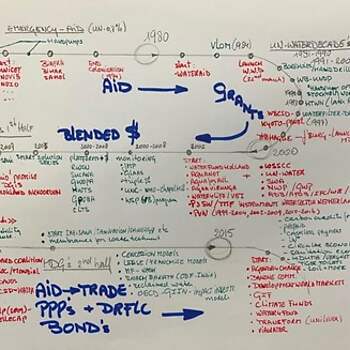Water Sanitation and Hygiene (WASH)
Over the past several decades, ever-growing demands for – and misuse of – water resources have increased the risks of pollution and severe water stress in many parts of the world. The frequency and intensity of local water crises have been increasing, with serious implications for public health, environmental sustainability, food and energy security, and economic development. Demographics continue changing rapidly and unsustainable economic practices are affecting the quantity and quality of the water at our disposal, making water an increasingly scarce and expensive resource — especially for the poor, the marginalized and the vulnerable.
Although WASH has been on the International Development Cooperation's agenda for decades, the sector is still in an alerting position. Our future, locally and globally will strongly depend on lessons learned from WASH history, its interventions and progress in development, its failures and its battle for priorities, in wash service concepts and WASH awareness and behavior change.
The WASH timelines are built up in chronological bullets from a policy development perspective, at the global level and at the national level of the Netherlands, in terms of its policy regarding WASH in international development cooperation.
This timeline is made up of 2 levels as 2 independent timelines, addressing global respectively Dutch developments in the WASH sector. Both timeline(s) are built up chronologically, focusing on policy and actors and instruments. Where appropriate a reference is made to crucial time markers in (technology and finance innovation driven) development and lessons learnt.
